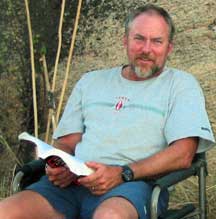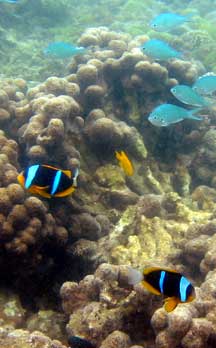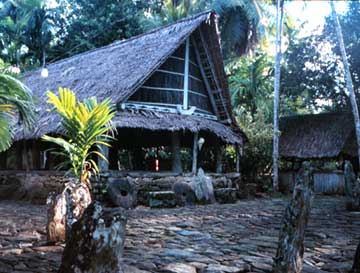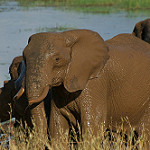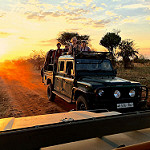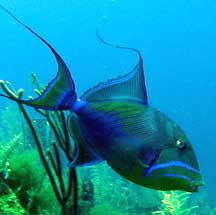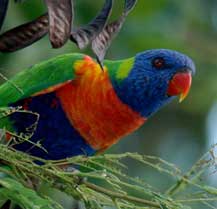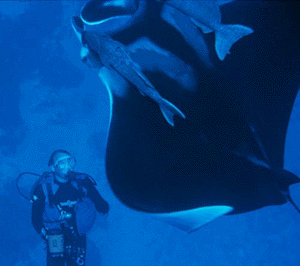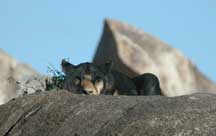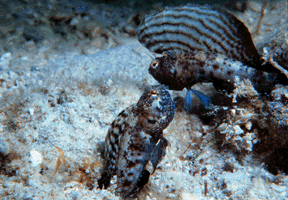Young, A & Clifton, K.E. 2015. Tardigrades inhabit lichen and moss in Smith Rock State Park, Oregon. Bull. Cal. Lichen Soc. 22(2), 48 - 53.
Bradbury,
J.W., Vehrencamp, S.L., Clifton, K.E. 2015. The Ideal Free Antelope: foraging dispersions. Behav. Ecol. 26(5), 1303 - 1313.
Clifton, K.E. 2013. The ecological significance of sexual reproduction by tropical green algae. In: Research and Discoveries – The revolution of science through SCUBA. Chapter 18. Smithsonian Contributions to the Marine Sciences, pp. 219 – 228.
Clifton, K.E. 2012. Common Reef Fishes of Northern Tanzania. Shutterfly Press, Redwood City, CA
Clifton,
K.E., Dubey, E.M., & Woodburn, E. 2009. A quantitative assessment
of reef fish distribution and abundance within
near-shore
reef habitats of Yap State, F. S. M. J
Ocean Science Foundation 2:1-29.
Clifton,
K.E. 2008. Spatial patterns of reproductive synchrony by four genera
of
tropical green seaweed across a latitudinal gradient in the
Caribbean. Proc.
11th Int. Coral Reef Symp. 1:351-355
Guest,
J.R., Baird, A.H., Clifton, K.E. & Heyward,
A.J., 2008. From molecules to moonbeams: Spawning synchrony
in coral reef organisms. Invert. Reprod. Develop. 51(3):145-149.
Clifton,
K.E. & Rogers, L. 2008. Sex-specific mortality explains
non-sex-change by large female Sparisoma radians, a
protogynous Caribbean parrotfish. Animal
Behavior, 75:e1-10.
Bernardi,
G, Robertson, D.R, Clifton, K.E., Azzurro, E. 2000. Molecular
systematics, zoogeography, and evolutionary ecology of the Atlantic
parrotfish genus Sparisoma. Mol.
Phyl. Evol.
15: 292-300.
Clifton,
K.E. & Clifton, L.M. 1999. The phenology of sexual reproduction
by tropical green algae. J.
Phycol. 35:24-34.
Clifton,
K.E. & Clifton, L.M. 1998 A survey of fishes from various
habitats within the Cayos Cochinos Marine Preserve, Honduras.
J.
Trop. Biol. 46: 109-124.
Clifton,
K.E. 1997 Mass spawning by green algae on coral reefs. Science.
275: 1113-1116.
Clifton,
K.E., Kim, K. &
Wulff, J.L. 1997 A field guide to the reefs of Caribbean Panama
emphasizing western San Blas, Panama. Proc.
8th Int. Coral Reef Symp.
1: 167-184.
Bradbury,
J.W., Vehrencamp, S.L., Clifton, K.E, & Clifton, L.M. 1996. The relationship
between biterate and local forage abundance in wild Thompson's
gazelles. Ecology
77: 2237-2255.
Clifton,
K.E. 1996. Field methods for the behavioral study of foraging
ecology and life history of herbivorous coral reef fishes. Proc.
Am. Acad. Und. Sci. 16: 75-82.
Clifton,
K.E. 1995. Asynchronous
food availability on neighboring Caribbean coral reefs determines
seasonal patterns of growth and reproduction for an herbivorous
parrotfish. Mar.
Ecol. Prog. Ser.
116: 39-46.
Clifton,
K.E. & Robertson, D.R. 1993. Risks of alternative mating
tactics. Nature
366:520.
Clifton,
K.E., Bradbury, J.W. & Vehrencamp,
S.L. 1994. The fine grain mapping of grassland protein densities.
Grass
and Forage Sci. 49:1-8.
Clifton,
K.E. & Clifton, L.M. 1991.
A field method for the determination of total nitrogen in
plant tissue. Commun.
in Soil Sci. Plant. Anal. 22:851-860.
Clifton,
K.E. 1991. Subordinate group members act as food
finders within striped parrotfish territories. J.
Ex. Mar. Bio. Ecol. 145:141-148.
Clifton,
K.E. 1990. The costs and benefits of territory sharing
for the Caribbean coral reef fish, Scarus iserti. Behav.
Ecol. Soc. 26:139-147.
Clifton,
K.E. 1989. Territory sharing by the Caribbean striped
parrotfish, Scarus iserti, patterns of resource distribution,
group size, and behaviour. Anim.
Behav. 37:90-103.
Grants
2008. Investigating
the effects of elevated atmospheric CO2 upon the structure
and function of calcium carbonate accretion in tropical green
algae of the genus Halimeda. John
S. Rogers Summer Research Program. Lewis and Clark College.
2001-2004. "The role of
sexual reproduction in the ecology and life history of green
algae on coral reefs. National Science Foundation. [0082439]
1999-2000. "Effects of prey
availability and flock size on the foraging success of shorebirds
in threatened wetland habitats" John S. Rogers Summer Research
Program. Lewis and Clark College.
1998 - 1999 "Ecological
and biochemical consequences of seaweed spawning on coral reefs"
National Geographic Research Council [6146-98].
1997. "The phenology of
sexual reproduction by green algae on coral reefs" Smithsonian
Tropical Research Institute Research Opportunity Grant [400-340026-0-16].
1994-1996. "Ecological determinants
of scheduling of spawning of a tropical reef fish" (D.R. Robertson,
Co-PI). Smithsonian Scholarly Studies Program [SS1234-530A].
